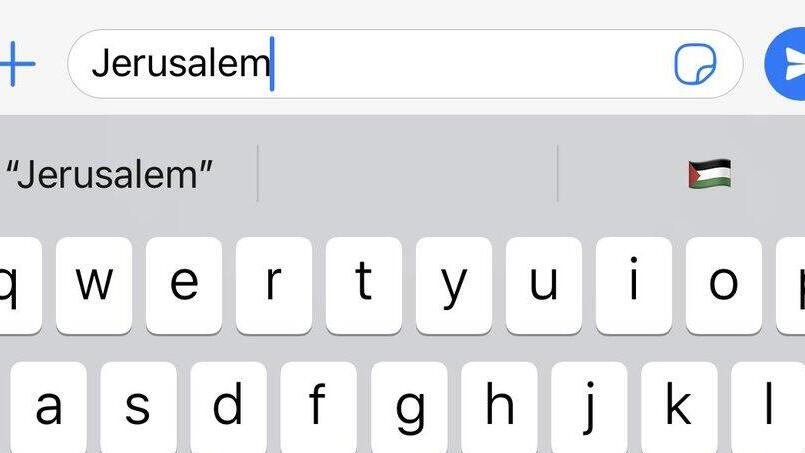Getting your Trinity Audio player ready...
British Jewish television presenter Rachel Riley discovered in a search of the word Jerusalem on her iPhone that a Palestinian flag emoji appeared. This, she said, happened after the latest iOS 17.4.1 update, released by Apple a fortnight ago.
Riley was surprised because flags normally do not appear when searching for a capital city. In response to a question from the BBC, Apple said this was an "unintended change" in the recent update of its operating system, and that it would be amended at the next update, although the company did not provide a timeframe for this update. Apple also said it has added the new emoji to its products. It is unclear whether other products, such as the iPad, have the same flag appear.
The problem stems from a predictive text feature whereby the search engine offers what it finds the users intended to write. In this case, the search engine came up with the wrong flag.
Last year, Palestinian Instagram users complained that they received the title "terrorist" in their app's biography. Meta and Instagram were then forced to apologize. It is unclear whether the predictive result was an innocent mistake or done deliberately.
The use of technological products to present ideas, harass users from the opposite side of the political divide, or present political views, has increased in the past years as has the tendency of technology company staff to use the platforms where they work to deliver messages that are offensive to some of their customers.
The last such incident occurred at a conference in New York during the speech of an Israeli senior Google executive, who was interrupted by a Google staffer who supports Palestine. The staffer was fired soon after, but his outburst spread online and evoked responses from all sides, which was not in Google's benefit.
That is the main problem. Companies always suffer from such incidents and cannot avoid complaints from the injured parties. Perhaps they would do well to check themselves carefully before making changes that could anger users.



